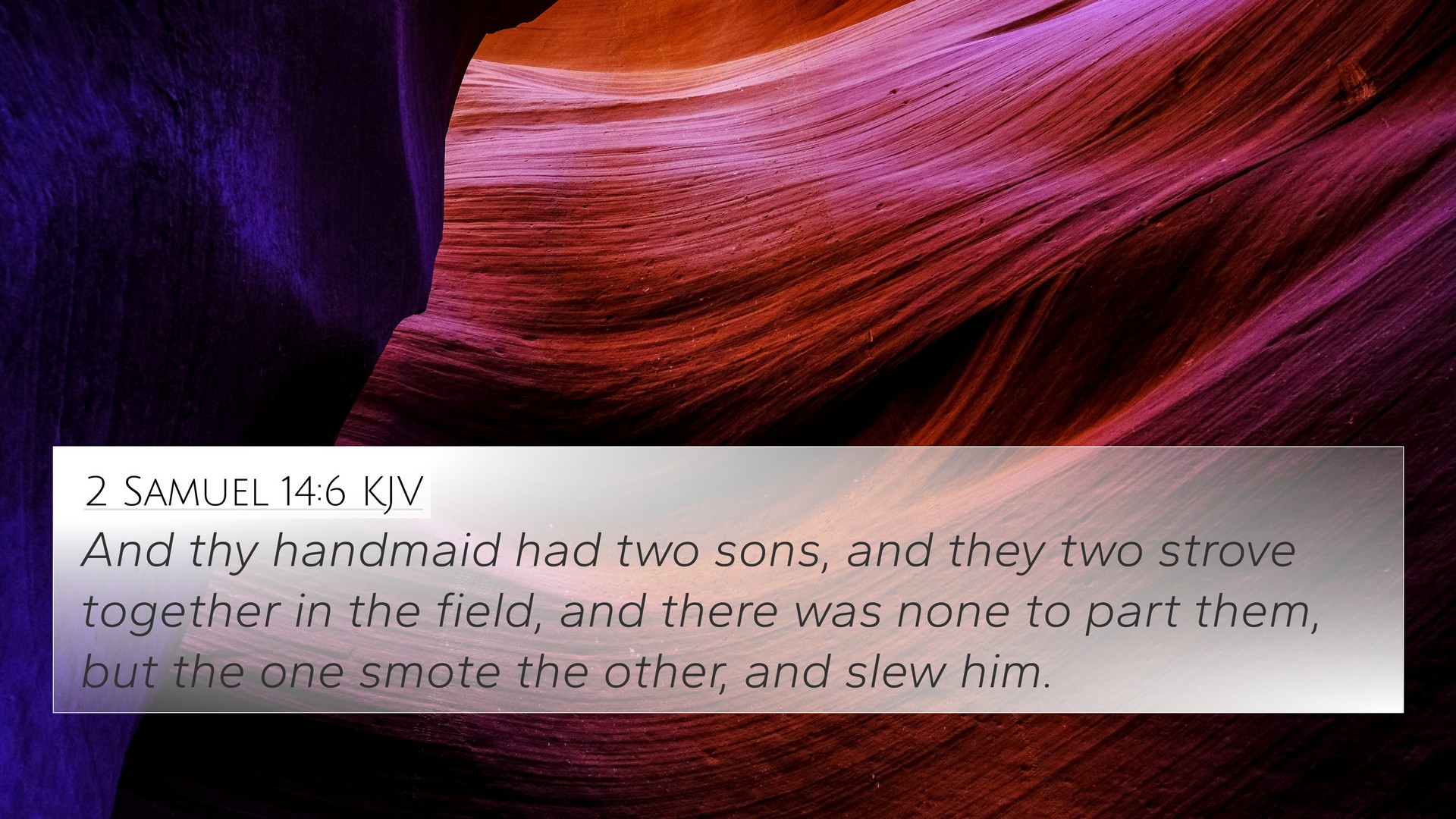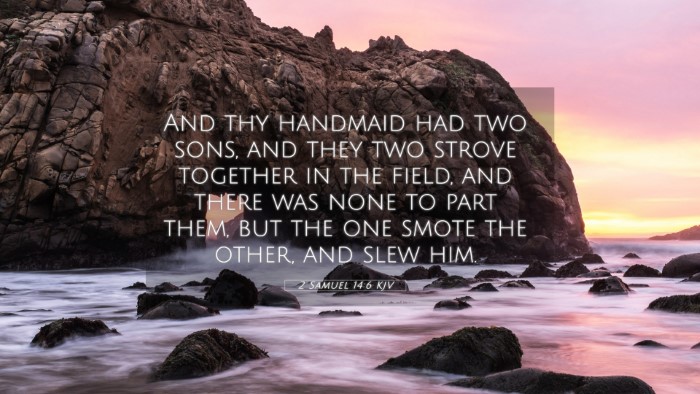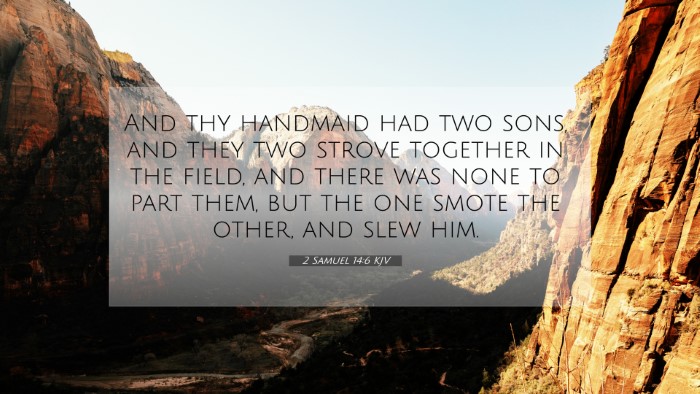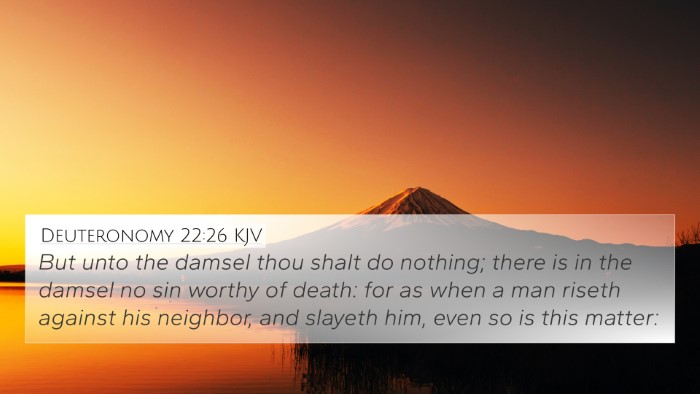Understanding 2 Samuel 14:6
2 Samuel 14:6 states: "And your maidservant said, ‘Please let the king remember the Lord your God, and do not permit the avenger of blood to destroy any more, lest they destroy my son.’" (NKJV)
This passage occurs in the context of Absalom's exile and the intricate dynamics of family, justice, and mercy in David's court. A woman from Tekoa is sent to appeal to King David regarding her situation, which symbolically reflects deeper themes of reconciliation and repentance.
Key Insights from Public Domain Commentaries
-
Matthew Henry:
Matthew Henry notes that the woman from Tekoa uses her story to draw attention to the plight of her family, emphasizing the need for compassion from the king. He observes how she skillfully pleads for justice tempered with mercy, a reminder that God's grace extends to all, especially in familial strife.
-
Albert Barnes:
Albert Barnes expands on the concept of the "avenger of blood," explaining its significance in Hebrew culture as a representation of divine justice. He sees in this plea a foreshadowing of the overarching theme of forgiveness, where David's response could parallel God's covenant of mercy.
-
Adam Clarke:
Adam Clarke comments on the woman's courage and intelligence in addressing the king. He stresses the importance of her metaphorical language and the urgent emotional appeal she makes, highlighting the necessity of the king to act in wisdom and compassion rather than mere justice.
Thematic Connections
The verse not only illustrates the nature of justice but also signifies the relational dynamics within families. The complexity of David's leadership is reflected in the woman's narrative, driving home the point that rulers are often faced with difficult choices that intertwine law and grace.
Cross-References Related to 2 Samuel 14:6
- Numbers 35:19: Discusses the role of the avenger of blood and its implications on justice.
- Deuteronomy 19:6: Provides the law concerning cities of refuge, highlighting the theme of protection and mercy.
- Proverbs 21:15: Describes the joy that comes with executing justice.
- Luke 15:20-24: A parable of reconciliation, illustrating the importance of mercy in familial relationships.
- Matthew 5:7: "Blessed are the merciful, for they shall obtain mercy" reinforces the reciprocal nature of mercy and justice.
- James 2:13: "For judgment is without mercy to the one who has shown no mercy," tying back to the necessity of mercy in judging others.
- Romans 12:19: Encourages believers not to seek revenge; instead, they should allow God to administer justice.
Application and Reflection
The plea for mercy reflects a universal need for compassion and understanding, especially in difficult situations. This serves as a reminder for both leaders and individuals to balance justice with mercy in their own lives.
Conclusion
2 Samuel 14:6 is a powerful testament of the need for grace in the face of judgment. As believers reflect on this passage, they can explore its application in their lives through the lens of forgiveness and reconciliation, drawing from the cross-references provided to gain deeper spiritual insights.





